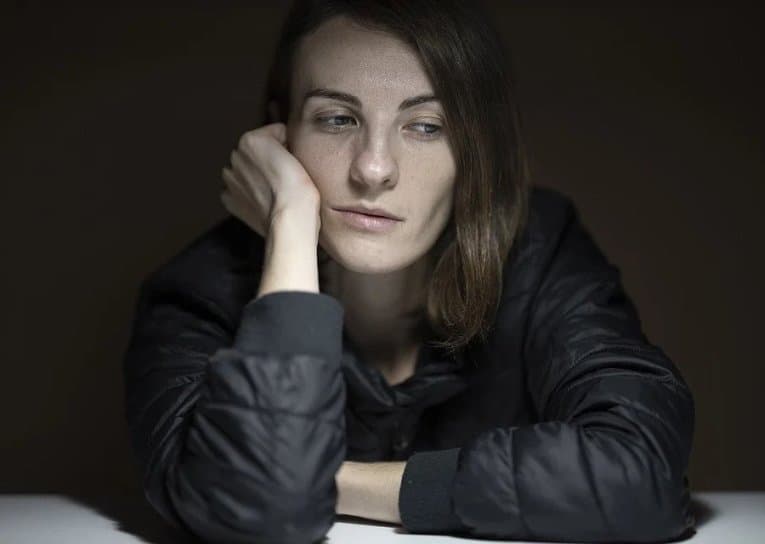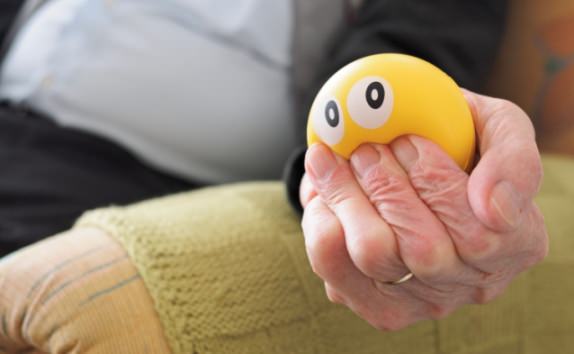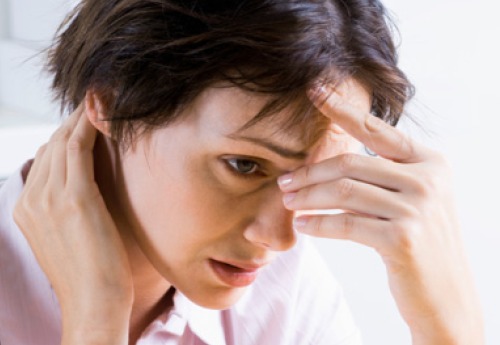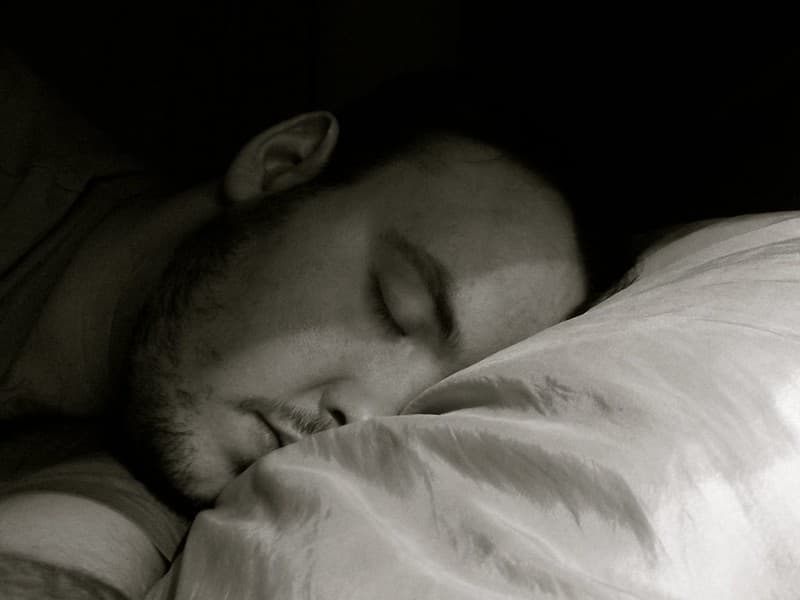Why Do I Feel So Tired Without Doing Anything?
Lately you feel very tired and without desire for anything and you wonder why this is happening to you? Feeling very tired, fatigued and without energy can be a temporary symptom that occurs due to many different factors, among which we can find lack of sleep, poor nutrition or a sedentary lifestyle.
When these symptoms last for a long time and do not disappear, it is important to pay attention to other symptoms that may appear, since it could be a sign of some type of underlying disease or condition that requires medical attention.
If you are worried because you constantly feel listless and fatigue does not allow you to carry out your daily activities normally, keep reading this to find the answer to the question of why I feel so tired and do not feel like doing anything.
Image source: Pixabay
Table of Contents
Lack of sleep
If you are exhausted and very sleepy, it is convenient that you first review your daily sleep and rest routine, since on many occasions not sleeping long enough is the main reason that the next day you feel very tired and without the strength to carry out your daily activities as normal.
Specialists point out that the ideal is for a person to sleep between 7 and 8 hours a day, although this varies according to the age and needs of each person.
Sleeping the necessary hours is not only essential to be rested and vital, but it also reduces the risk of developing cardiovascular diseases, diabetes and obesity in the future.
For all these reasons, it is advisable to take into account some of the advice given by experts to achieve a restful and healthy sleep:
- Establish and maintain a fixed sleep schedule both during the week and on weekends.
- Carry out a routine to relax before bed.
- Exercise every day.
- Favor the right conditions to sleep well, taking into account factors such as temperature, noise and light in the room.
- Have a good mattress and a comfortable pillow.
- Moderate caffeine consumption.
- Turn off electronic devices before sleeping.
You may also be interested in: How to relieve nasal congestion at night
Sleep Disorders
On the other hand, being always so tired, without energy and very sleepy can also be due to suffering from a sleep disorder that prevents you from enjoying a restful and pleasant sleep. The most common sleep disorders are the following:
Insomnia
It is the inability to fall asleep and can be caused by various factors, such as bad habits, stress, depression, anxiety, taking medications, disorders or diseases, etc.
People who suffer from insomnia the next day are tired and sleepy, but at night it is very likely that it will be difficult for them to fall asleep again despite the great fatigue they feel. In the following article, you will find the details about insomnia.
Sleep Apnea
It is defined as the cessation of breathing for a short period of time while you are asleep. This is accompanied by the emission of loud and constant snoring and the affected person wakes up due to the feeling of suffocation that they feel. All this causes that the next day you have a great drowsiness and fatigue.
Narcolepsy
It is a neurological pathology in which the neural mechanisms of sleep are altered. The person has sudden sleep episodes during the day, being able to fall asleep at any time and place.
Other associated symptoms are hallucinations, constant tiredness, sleep paralysis, depression, and difficulty concentrating.
Sleepwalking
The person gets up, performs actions, speaks, etc., being asleep for short periods of time, and this causes them not to rest properly and the next day they are more tired and sleepy.
Little Physical Activity
Why am I so tired if I don’t do anything? If you feel identified with this question, you should know that inactivity produces more inactivity. Therefore, leading a sedentary lifestyle and not doing any physical exercise can also answer your initial question.
In addition to the fact that when performing physical exercise, substances are released that make you more active throughout the day, it also improves the functioning of the cardiovascular system and allows a greater arrival of oxygen and nutrients to the tissues, which provides more energy to cope with to all the daily challenges.
Therefore, it is recommended to put aside a sedentary life and stay active by doing a little physical activity every day, it may be enough with about 30 minutes a day. In addition, it will also help you to be more relaxed and to be able to sleep better at night.
Bad Eating Habits
If you always feel tired and without energy, you should also review your diet, as a good diet is essential to satisfy all the nutritional needs of the body and to avoid tiredness and fatigue.
Both the lack of vitamins, minerals or proteins and the excessive intake of fatty foods with a lot of sugars can generate an energy deficit that, later, will cause more tiredness, exhaustion, drowsiness and lack of energy.
Therefore, it is essential to make an effort to have a more varied and healthy diet, as well as to adopt good eating habits, among which are eating several times a day, having a good breakfast, eating lightly and avoiding very heavy or copious dinners that, later can interfere with a good night’s rest.
Lack of hydration can also cause headaches or fatigue. You need to stay hydrated. To do this, learn to listen to your body and drink water whenever you feel thirsty.
Stress
Stress is the activation of the organism in the face of a situation that is perceived as a challenge or threat. Depending on whether this activation is being appropriate and useful for the situation or not, we can distinguish between:
- Eustress: Optimal activation level that allows you to face the situation with good performance.
For example, when you are moving and need to work to the maximum of your abilities to organize the situation in the best possible way. Another example would be when you have a difficult exam and you need all your attention and concentration to be able to study.
- Distress: Exaggerated level of activation that hinders the confrontation of the situation and that is dysfunctional. At this level, both the organization of the move and the study would go wrong and the stress would be counterproductive.
After episodes of straining, it is normal to feel tired of everything and without strength, as you have overworked to adapt to a new or complex situation.
But there is still more, in case this level of activation is not reduced after the stressful event and lasts over time, we are talking about chronic stress.
In this case, the effort of the organism is constant and this is very exhausting, since the level of alertness remains high and the balance is not allowed to be restored.
When a person has chronic stress, it is normal for them to feel overwhelmed and collapsed, as well as exhausted, sad and not wanting to do anything.
These stress levels are reached when unfavorable situations are experienced over which there is no control and no resources to deal with them. In these cases, it is vitally important to seek professional help, since chronic stress has consequences for health, altering the function of the immune system and the cardiac system.
Depressive Disorders
Depressive disorders cause fatigue and apathy, so if you feel sad and do not want to do anything, depression is one of the possible causes. The main symptoms of depressive disorders are the following:
- Low mood
- Decreased interest and motivation
- Sleep disturbances
- Weight loss or gain
- Psychomotor impairment
- Fatigue and lack of energy
- Cognitive difficulties (attention, concentration…)
- Thoughts related to death.
When something bad happens to us in our lives, it is normal for us to feel sad and anxious, but this state of mind usually improves over time.
However, we speak of a depressive disorder when these symptoms are continuous over time, occur every day or almost every day, and interfere with the performance of normal activities of daily living, such as working, doing housework or enjoying social relations.
Depending on the symptoms experienced, their intensity and duration, we can distinguish between different types of depressive disorders:
- Major depressive disorder
- Bipolar disorder
- Seasonal affective disorder
- Cyclothymic disorder
- Premenstrual dysphoric disorder
- Persistent depressive disorder or dysthymia.
In addition, depression can also be secondary to the use of drugs or an illness, so if you feel identified with the symptoms of depression, it is very important that you see a specialist, who will carry out an examination to identify the problem and its causes.
In this way, you will be able to carry out the treatment you require according to your symptoms and severity. Depression is treated and symptoms subside in the vast majority of cases.
Anxiety Disorders
Anxiety is an adaptive mechanism that has its uses. It mobilizes the body’s resources so that the body is prepared to respond to a threat. Thus, when we are in danger, anxiety gives us the impulse to escape or fight and survive. However, like everything, it is good in its fair measure.
Frequently, anxiety is disproportionate, interfering with the normal development of the person’s life, becoming a problem.
If your question is “why do I feel so tired and dizzy?” anxiety may be your answer. Dizziness can be caused by an alteration in the respiratory rhythm, a typical symptom of anxiety.
Although tiredness and apathy are not typical symptoms of anxiety disorders, they can appear as consequences. Living with anxiety is exhausting, living avoiding situations, worrying too much and having difficulties to work, to sleep or for other basic activities can make you feel sad, tired, without strength, without encouragement and without desire for anything.
Anxiety problems are reduced through psycho education and psychological techniques such as breathing, relaxation, exposure and cognitive restructuring. If you think that the cause of your tiredness may be anxiety, go to a professional who can help you manage it.
Fibromyalgia
If you often say “I am very tired and my whole body aches” or “I am very tired and my legs ache”, you should know that tiredness and pain are the main signs of fibromyalgia.
Fibromyalgia is a chronic and complex disease according to the World Health Organization. It affects between 3% and 6% of the population and its most characteristic symptoms are generalized pain and profound exhaustion:
- The pain appears in specific points but in a generalized way in muscles, ligaments, tendons and joints. Also feel pain in the face or jaw. The pain is also referred to as discomfort or burning. A common complaint from people with fibromyalgia is “my bones ache and I feel tired.”
- Fatigue and tiredness
- Rigidity
- Inflammation
- Sleep disorders
- Cognitive problems (attention, concentration, memory…)
- Numbness or tingling
- Irritable bowel syndrome.
Although it is a chronic syndrome, the symptoms of fibromyalgia can be controlled through medication, healthy habits, psychotherapy and complementary therapies. Therefore, it is important that a professional evaluate your case to make a diagnosis.
Chronic Fatigue Syndrome
Chronic fatigue syndrome or myalgic encephalomyelitis is a disease characterized by exhaustion that makes it difficult to carry out normal activities. The tiredness can be so extreme as to prevent the patient from getting out of bed in the morning. The most characteristic symptoms are:
- Extreme fatigue that does not improve with rest
- Sleep problems
- Discomfort after physical or mental exertion
- Cognitive difficulties (concentration, attention…)
- Pain
- Dizziness.
The age range in which the appearance of fibromyalgia is most common is between 40 and 60 years. Like fibromyalgia, chronic fatigue has no specific cause or cure. However, it is possible to reduce symptoms through drugs, healthy habits and psychotherapy. If you usually feel very tired, weak and dizzy, it is appropriate that you consult a professional who can assess your case.
Sleep at low light
The circadian rhythm that regulates sleep and wakefulness is governed, among other things, by sunlight. Exposure to light is essential to keep this mechanism in balance. When there is no light, the body interprets that it is night and that you should sleep. Therefore, it releases melatonin, a hormone that produces sleep.
Therefore, the lack of light can make you feel more tired and sleepy. Try to go outside during the day and keep light levels low at night.
Diseases that cause fatigue and apathy
There are other pathologies that can cause you to feel tired most of the day, with no desire and no strength to carry out your daily activities:
- Anemia: Anemia is a disease characterized by low levels of iron in the body, which causes it to receive less oxygen. This translates into symptoms such as fatigue, tiredness, exhaustion, dizziness, being very cold, etc.
- Diabetes: This disease is often accompanied by significant fatigue and weakness, as the high levels of sugar remain in the blood and do not enter the cells to provide us with energy.
- Heart disease: Fatigue, tiredness and extreme weakness can also be caused by some type of heart problem, since a weakened heart does not have the adequate capacity to meet the energy demand that the body requires.
- Thyroid diseases: Both hypothyroidism and hyperthyroidism are two conditions that can cause tiredness, apathy, mood swings, irritability, muscle weakness, among many other physical and psychological symptoms.
- Chronic renal insufficiency: The loss of kidney function can cause the suffering of various alterations and anemia, the accumulation of toxins, malnutrition and the acidic blood that can cause make the affected person have a great fatigue and weakness.
- Pulmonary diseases: if the lungs are not healthy, it is very likely that the oxygenation of the blood will be compromised and, consequently, in addition to other symptoms, a picture of significant tiredness and fatigue will occur. This can happen in diseases such as asthma, chronic bronchitis or emphysema.
- Coronavirus: Some COVID-19 patients also report extreme tiredness that prevents them from performing even the most basic grooming and self-care actions.
Conclusion
If you feel very tired, you don’t feel like doing anything and, in addition, you present other types of symptoms or suspect that you could suffer from any of these diseases, it is very important that you consult your doctor and inform him of your case, so you can start the most appropriate treatment.





